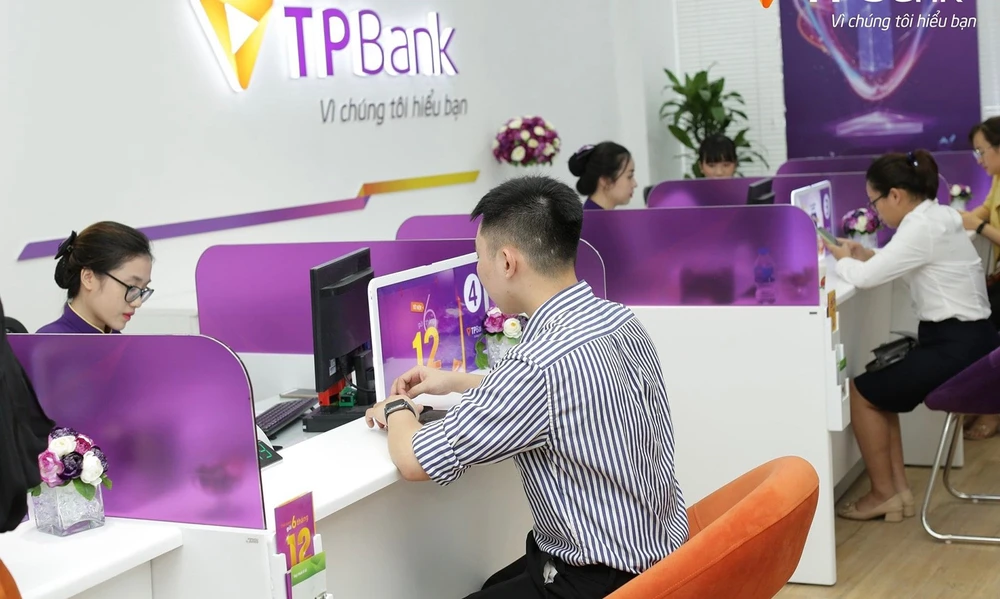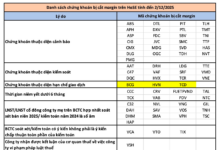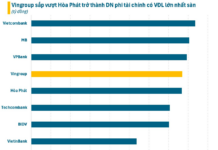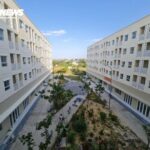
Interest Rates Are Down, But Few Are Borrowing
In reality, mortgage rates are currently quite low, but many remain cautious. Hung Minh (from Thu Duc City, Ho Chi Minh City) shared that with a combined income of 30 million VND per month and some savings, he and his wife still cannot afford to buy a house. Currently, they are renting an apartment near Rach Chiec Bridge for 9 million VND per month. “If we buy an apartment for nearly 3 billion VND, my wife and I would have to borrow about 1.5 billion VND. Although banks are offering the first year at 6%/year, the floating rate afterward, including a margin of 3.5%-4.5%/year, could go up to 9%-11%/year. If we take out a 15-year loan, we would have to pay 16-18 million VND per month, including principal and interest, while also managing our daily expenses and raising our children. So, we are still cautious and need to plan more carefully,” Minh said.
According to research organizations in the real estate market, the demand for housing is substantial, but with the current high prices, many with decent incomes are reluctant to buy. This contrasts with credit institutions’ statistics showing a strong increase in real estate credit. In the first six months, real estate credit outstanding balance reached approximately 3,019 trillion VND, accounting for 21.4% of the total outstanding credit in the economy. This is the first time the real estate sector’s outstanding balance has exceeded 3 trillion VND. According to the State Bank of Vietnam (SBV), as of the end of July 2024, real estate credit increased by 4.6% compared to the end of 2023. Specifically, real estate business loans increased by 10.3% (i.e., invested in projects), but real estate consumer loans only increased by 1.2% (i.e., home purchases).
The strong growth in credit has been accompanied by a decrease in mortgage rates. Many commercial banks (NHTMs) have significantly reduced mortgage rates to 5%-6.5%/year for the first six months or year. Recently, TPBank reduced rates by 0.9%-1.3% for members borrowing to buy, build, or renovate houses, offering rates from 5.5%-5.9%/year for 12 months and a principal grace period of up to five years. BVB offers home loans at rates starting from 5.49% with a 24-month grace period, while Standard Chartered Bank provides fixed-rate mortgages for the first three years, ranging from 6.6%-6.8%/year.
However, there haven’t been many home loan borrowers recently! Mr. Pham Duy Hieu, Acting General Director of ABBank, explained that in the first six months, the capital demand of individual customers increased more slowly than that of enterprises. This is due to the economic downturn, enterprises laying off employees, and, consequently, affecting individuals’ loan demands, including home loans. Moreover, the real estate market is stagnant, and there is a limited supply of affordable apartments, so the demand for home loans has not increased. Vietcombank also shared that previously, retail credit, mostly for home purchases, accounted for nearly 20% of the bank’s total outstanding credit. However, the decline in home loans in the first months of the year caused a decrease in the bank’s retail credit.
Introducing Mechanisms to Stabilize Housing Prices
From the perspective of a financial and banking expert, Dr. Nguyen Tri Hieu, believes that people are still reluctant to buy homes at this time, even with the lowest interest rates ever, partly because housing prices remain high. Additionally, while interest rates have dropped, this only applies to the initial period. The leverage ratio for home purchases typically reaches 70%-80% of the property value. High housing prices and high leverage create a financial burden for homebuyers. Furthermore, investing in real estate at this time does not offer a high return on investment. “Previously, a 3 billion VND apartment could be rented for 10-12 million VND per month. Now, to invest in an apartment at the same price, one would have to spend 4.5-5 billion VND,” Mr. Hieu illustrated.
VPBank Securities (VPBankS) also stated in a recent report that, despite the significant decrease in mortgage rates over the past year, the high property prices have prevented positive changes in real estate credit. According to VPBankS, sustainable credit growth should be driven by people’s capital needs and, more importantly, the real estate sector. Real estate credit is considered a group with high and stable capital demands, along with collateral that helps reduce bad debt risk. Therefore, policies and mechanisms are expected to stabilize housing prices to match people’s incomes, and social housing credit packages are expected to be disbursed more to support sustainable credit growth.
In its updated report on Vietnam’s economic situation released in late August 2024, the World Bank stated that Vietnamese authorities are making efforts to support the real estate market recovery, including the early implementation of relevant laws. Additionally, real estate loan interest rates have decreased for new loans after the SBV cut interest rates four times in 2023, which will somewhat support the real estate demand. With such macro policies, it is expected to stimulate the capital borrowing demand of investors and the home-buying demand of the people. As a result, outstanding credit for real estate business loans is expected to increase by 16%-18% in 2024.
According to the Ho Chi Minh City Statistics Office, as of the end of August 2024, credit outstanding in Ho Chi Minh City is estimated to have increased by 4.5% compared to the end of 2023 and by 11.4% compared to the same period. This figure is much lower than the country’s overall credit growth rate of 6.63% (as of August 26). Credit growth in Ho Chi Minh City has slowed recently: 4% in June, 3.9% in July, and 4.5% in August 2024 compared to the end of 2023. The Ho Chi Minh City Statistics Office assessed that capital absorption has not improved much. The 15% credit growth target for the year will face challenges without solutions.
NHUNG NGUYEN
The Interest Rates Will Stay Low
“Banks report a resurgence in credit demand since mid-August, prompting many to adjust their deposit rates for select tenors to attract funds and meet this demand. However, lending rates will remain low.”








































